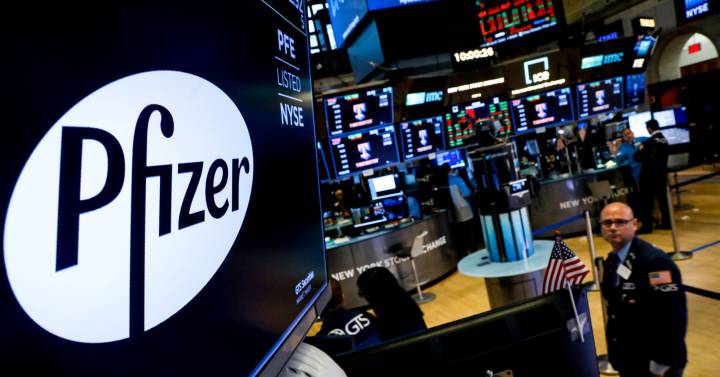When Pfizer published a press release on Monday, November 9, about the effectiveness of its coronavirus vaccine, much of the world breathed.
The prospect of an effective antidote to the coronavirus pandemic not only brought relief to healthcare specialists and the general population;
it also removed all economic forecasts;
Not in the short term, since there is time for the vaccine to be distributed, but it is for 2021. Investors tried to adapt as best they could to the new context, which led to the biggest rise in the Ibex in two decades.
However, there were also losers.
Among them, the automatic models of stock trading, based on algorithms, correlations and historical movements of different types of assets.
This type of quantitative investment has been very fashionable in recent years, but it is not as shielded from the haphazard markets as its creators envision.
More information
Moderna's Covid-19 Vaccine Outperforms Pfizer's With Nearly 95% Efficacy
The EU finalizes vaccine supply agreements with Moderna and Curevac
This is Pfizer's titanic challenge to fly the frozen vaccine
"Events occurred that statistically could never occur," Jon Quigley, manager of Grat Lakes Advisory, told Bloomberg.
According to a note to clients, last Monday's price movements only occur "approximately" once every 5,944 x 1025 days, in a normalized series of returns.
In years the result is a number 16 followed by 75 zeros.
In comparison, the age of the Universe is estimated at about 13.77 billion years (13 followed by only nine zeros).
Even by this year's violent standards, the past week was particularly savage for firms that base their operations on quantitative analysis.
It was not just a price hike, it was also a massive rotation towards assets that benefit from the economic cycle.
A trend that seems to be more common than expected thanks to cheap money and the popularity of this type of thematic investments.
Quigley's outlandish calculation is based on a so-called normal distribution of statistical data: under its premises, 98% of the observations of a given phenomenon fall within a range of three standard deviations from the historical mean.
Its portfolio, specialized in small stocks, underwent a movement above the mean of eight standard deviations.
MODERN via REUTERS
These mechanisms are used to calculate the margin of error for your investments and the risk that complex bets on the market will collapse.
But they are calculations made, necessarily, with historical data, which did not register situations like the current one when they appeared.
The extra performance of hedge funds last week (called alpha in slang) saw the biggest drop since March;
systematic funds suffered the most, according to Goldman Sachs.
These movements affect the options market with particular violence, mechanisms widely used to shield positions and to which these methods are applied to protect portfolios at a minimum cost.
It is not the first time that reality has destroyed quantitative investment models built on historical data.
In August, Société Générale used two decades of data to show that stocks and junk bonds have become more prone than ever to quick gains and losses.
This means that extraordinary movements are becoming more frequent and less controllable.
In technical terms, the tails of a distribution of price data are getting fatter.
But managers seem increasingly aware of these possible failures every day: a meeting this year among capital markets managers concluded, according to Bloomberg, that the sector should carry out more stress tests based not only on historical measures but also on hunches, especially in situations as difficult to quantify as the pandemic.
"It is no coincidence that we see more movements of six standard deviations than ever," Cem Karsan, founder of Aegea Capital Management, said on Twitter.
"These are not our parents' stock markets."

